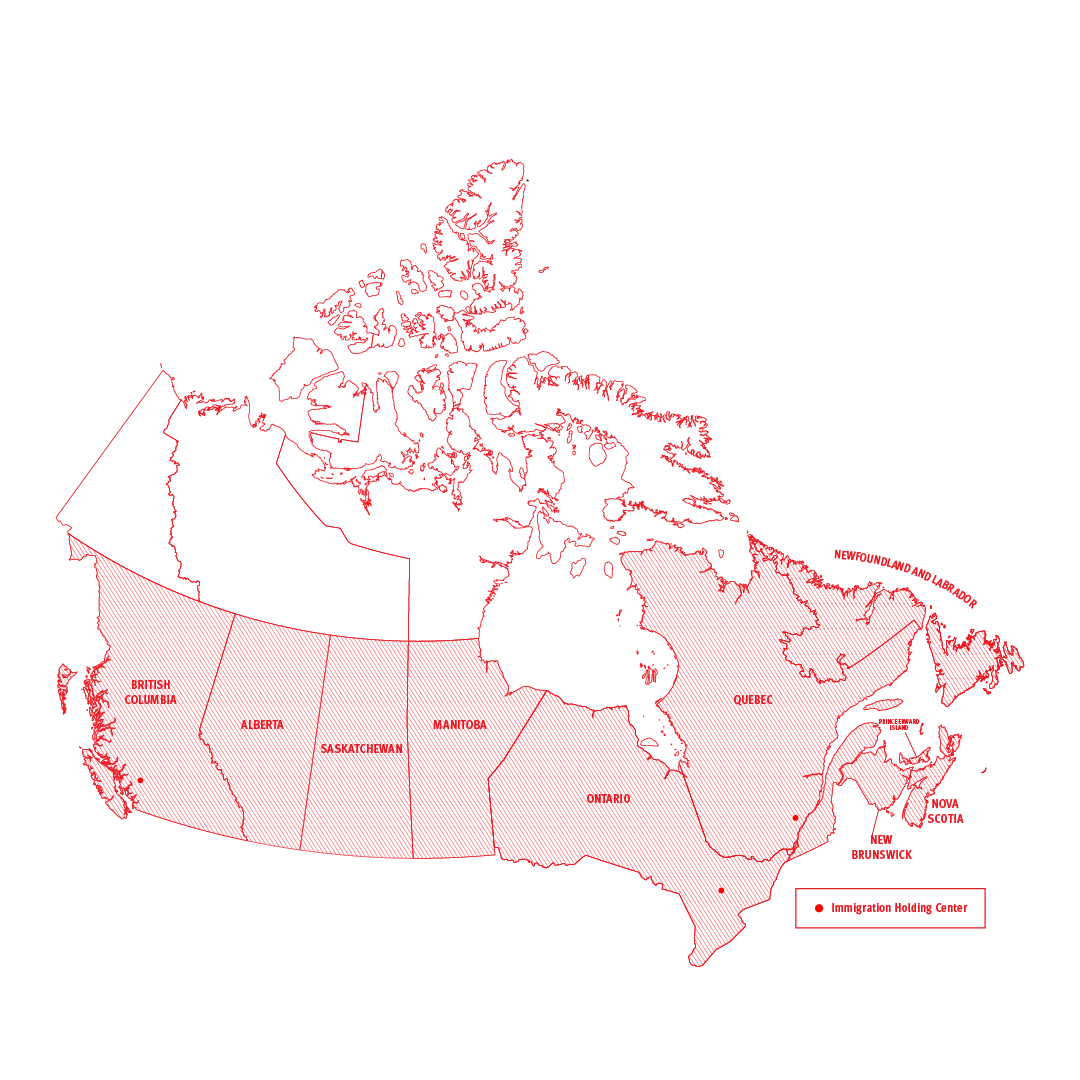
It’s time for Canada to
truly welcome people seeking safety or a better life

Did you know?
Even though Canada holds itself out as a refugee-welcome and multicultural country, every year the federal government incarcerates thousands of people seeking safety or a better life.
1. Federal Government of Canada
Email the Prime Minister of Canada.
2. Tweet
All 10 of #Canada's provinces have now committed to ending their immigration detention deals with #CBSA, a major victory for refugee rights. It's time @JustinTrudeau takes meaningful steps to end immigration detention across the country. #WelcomeToCanada https://www.hrw.org/welcometocanada
TWEET
Our Vision
We believe Canada should uphold its welcoming reputation by treating all people with the dignity and respect they deserve.
Human Rights Watch and Amnesty International have documented human rights violations in immigration detention in Canada. Between April 2017 and March 2020, more than a fifth of immigration detainees – about 5,400 – were held in 78 provincial jails across Canada, many of which are maximum security facilities. People held in immigration detention are restricted to small spaces and under constant surveillance. In provincial jails, many are confined in dangerous environments where they may be subjected to violence.
People who are from communities of colour, particularly those who are Black, appear to be incarcerated in immigration detention for longer periods and often in provincial jails rather than immigration holding centres.
People with mental health conditions face discrimination throughout the detention process. Immigration detention also has long-term consequences that ripple beyond immigration detainees and affect their children, other loved ones, and communities.
There are viable alternatives to immigration detention! Canada has a real opportunity to overhaul its immigration and refugee protection system in a way that prioritizes human rights and mental health.
We are asking people to call on the federal government to take meaningful steps to end immigration detention across the country, and ensure people seeking safety or a better life in Canada receive the welcome they deserve.
Read the full report.
10 Provinces End Use of Jails for Immigration Detention
